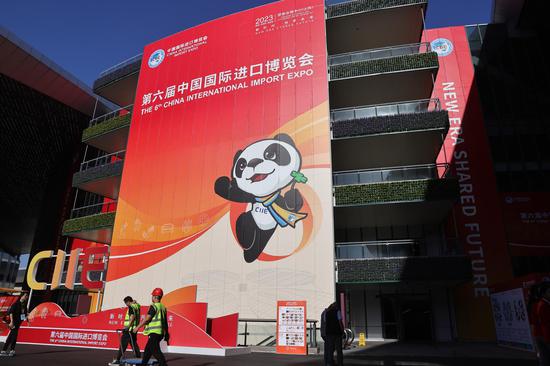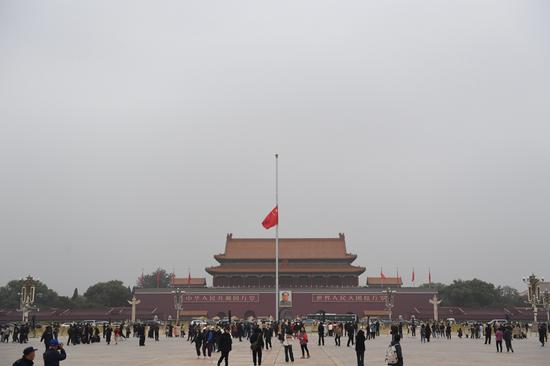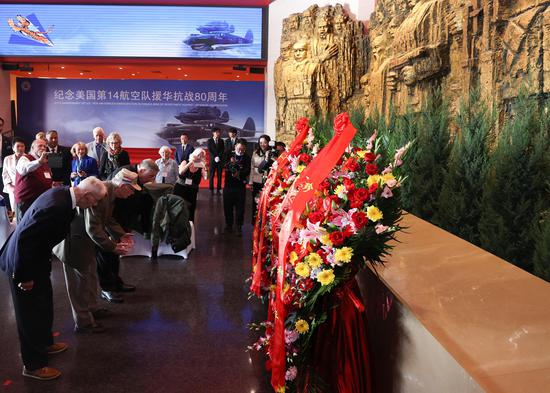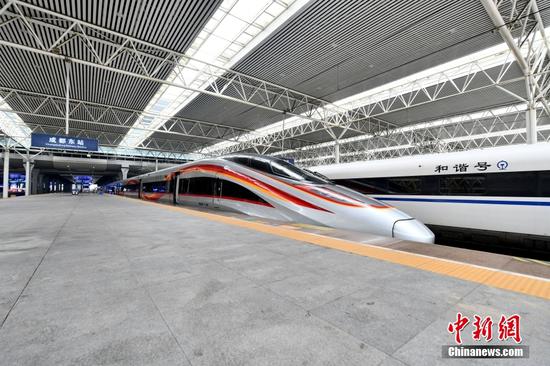Fierce competition, uneven rewards lead to calls for improved regulation
Livestreamers are going to more and more wacky lengths in order to attract eyeballs and generate sales in China's rapidly growing and competitive live online e-commerce market, leading some commentators to push for more regulation and standards.
In late October, a female livestream sales host named "Honglvdeng de huang", with 9.1 million followers on Douyin, the Chinese version of TikTok, generated a sour response when she began selling YSL cosmetics with her hair and makeup deliberately messy.
Another sales host, "Crazy Xiaoyang", who has nearly 100 million followers on Douyin, has also stepped over into the absurd in order to generate sales, donning the small children's clothing he was selling in order to demonstrate the elasticity of the fabric.
Such antics have become more common among online salespeople and demonstrate just how fierce competition in the industry has become.
Figures from the National Bureau of Statistics show that by the end of 2021, China had around 200 million in flexible employment, and Ali Research, Alibaba's business research arm, predicts that figure to rise to 400 million by 2036.
Digital-based flexible jobs such as livestream hosts and ride-hailing drivers have surged in recent years. According to recruitment portal Zhaopin, 18 percent of vacancies in the first quarter this year were for digital-based flexible jobs.
As livestream sales have become an important avenue of flexible employment in recent years, many livestreaming anchors have got creative, adding comical and absurd elements into their livestreams to help boost sales.
"We have no choice as we have a monthly evaluation system based on our sales, and we have to attract a bigger audience to sell products to earn a higher salary. It's easier to attract people's attention with jokes or doing something funny," said Zhong Yanqing, a 23-year-old livestream host in Hangzhou, Zhejiang province.
She said the competition among livestreamers is very intense at her company and she feels exhausted sometimes.
"There are always beautiful people appearing on social platforms, and my company invites them to train them to become 'potential' internet celebrities for livestream commerce. There is also a big income gap between us unknown hosts and those toptier ones, who may earn our full-year salary in just an hour of livestreaming."
Last month, Ling Dale, known online as "Luha" and who is famous for imitating Lu Han, the former member of a South Korean pop group, said he earned 35 million yuan ($4.8 million) in seven months doing livestream sales.
Li Qiang, Zhaopin's vice-president, said the fast development of the digital economy has incubated new ways of employment and transformed companies' labor demands.
"Livestream sales are a new way of utilizing e-commerce, which can increase product sales, brand popularity, and interactions between brands and customers."
He said that though the growing livestreaming industry has offered more job opportunities, it still faces many problems yet to be solved or regulated.
"The livestreamers have unstable and non-transparent incomes due to the lack of a State-level income management system, which may affect fair pay and tax management."
Some livestreamers have extraordinarily high incomes.
According to a recent report by the China Association of Performing Arts, 95.2 percent of livestream hosts where the job was the main source of income earned under 5,000 yuan ($680), whereas 0.4 percent earned over 100,000 yuan per month. Their non-transparent incomes have also led to difficulties in tax supervision and levying.
Some provinces and cities have taken explorative steps to better regulate livestream e-commerce.
Hangzhou in Zhejiang province is soliciting public opinions on a draft guideline for live commerce regulation. Under the draft, livestreamers will be banned from inappropriate and vicious competition by requiring product manufacturers to sign floor price agreements.
Li from Zhaopin added that the government can better protect livestreamers' rights by including them in the minimum wage cover, with regulated working hours and paid vacations in its policymaking.
"Digital technologies can be used in tax inspections on digital-based flexible jobs to better regulate the industry," he added.


















































 京公网安备 11010202009201号
京公网安备 11010202009201号